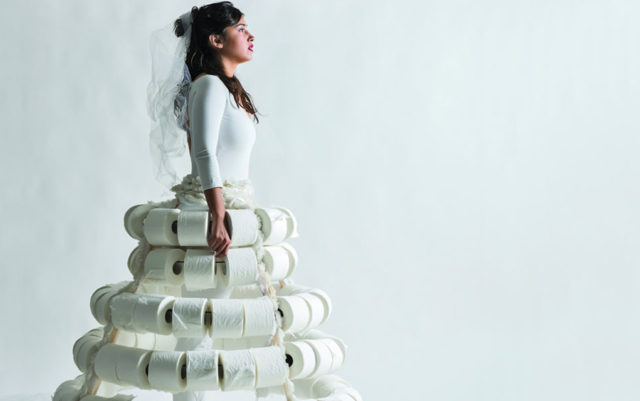
From March 9 to 19, the Boulder Jewish Film Festival will screen over 20 different films of various lengths with subjects of inclusion, diversity and heart. In previous iterations, BJFF provided sold-out audiences a chance to experience something different. But in 2017, the significance of a Jewish film festival takes on a new meaning in a world where Jewish cemeteries are vandalized and Jewish schools and community centers are the targets of bomb threats — a terrifying reality the Boulder Jewish Community Center has experienced first-hand.
The Boulder JCC is just one of many institutions that have been threatened since January 20. But just because anti-Semitism, along with many other forms of religious persecution and xenophobia, is on the rise in America doesn’t mean that one should hide in terror. On the contrary, what is necessary at a time like this is more communal moments of inclusion and acceptance and the BJFF is just the place to start.
“People aren’t threatened by movies,” BJFF founding director Kathryn Bernheimer tells Boulder Weekly. “In other words, you don’t have to know Hebrew, you don’t have to know the prayers, you don’t have to believe in God, you don’t have to be Jewish. … Everybody goes to a movie and everybody can talk about a movie. So it’s a very low barrier. It’s not threatening, it’s very wide open to anyone.”
Over 11 days, BJFF will screen 21 features and four shorts ranging from narratives to documentary from Hollywood, The Last Laugh, to Argentina, Wild Tales, and Israel, Wedding Doll. Even the local documentary, Forgotten Jewels: A Haven in Havana will receive a special screening with filmmakers Judy Krieth and Robin Truesdale appearing in person.
BW spoke with Krieth and Truesdale last year when Forgotten Jewels was still a work in progress, but even then, Krieth and Truesdale’s passion for telling this personal story of survival was apparent.
“Films give us the opportunity to examine our lives, to talk about politics, to talk about sociology, to talk about interpersonal relationships,” Berheimer says. “All of these [films], whether it’s historical or whether it’s contemporary, they all allow us to reflect on life.”
And at BJFF, that discussion is part and parcel of the festival.
“One of the qualities of our film festival is that there is a talkback after every screening,” Berheimer explains. “I’ve been doing this now for 14 years … and I never show anything that doesn’t get a conversation afterward. … It’s a bonding experience; it’s bonding with other people in the room.”
That experience will stay with viewers long after the screens have gone dark.
“The messages of tolerance and inclusivity and diversity are very important in our films and certainly in Jewish values,” Berheimer says.
“We are a value-based organization.” Berheimer continues. “That doesn’t mean they’re exclusively Jewish, but certainly a celebration of diversity, and certainly no place for hate. All of these values are very built in.”
The Boulder Jewish Film Festival runs March 9–19 at The Dairy Arts Center with the gala opening film, On the Map, at the Boulder Jewish Community Center. Information, show times and tickets can be found at boulderjcc.org and thedairy.org.
On the Bill: Boulder Jewish Film Festival. March 9-19. The Dairy Center for the Arts, 2590 Walnut St., Boulder, 303- 440-7826. Gala Opening. 7 p.m. Boulder Jewish Community Center, 6007, Oreg Ave., Boulder, 303-998-1900.














